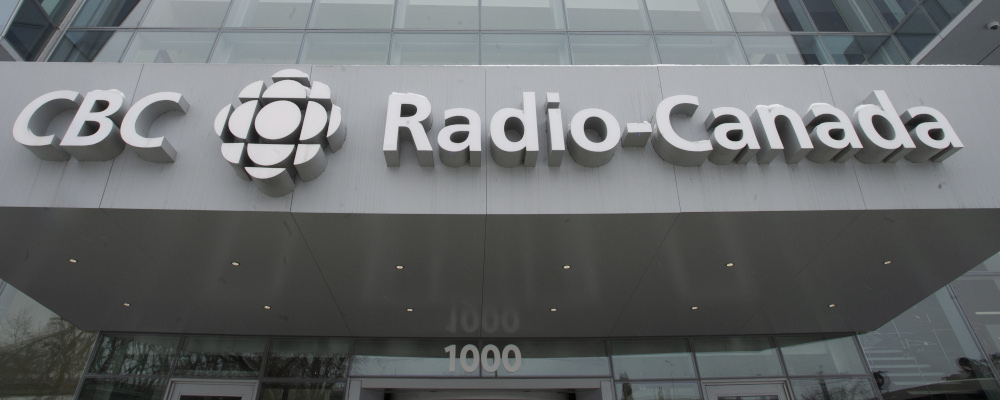Last week, former CBC producer Tara Henley released a cutting critique of the broadcasting corporation’s embrace of the woke agenda. To work at the CBC, she writes, “is to consent to the idea that a growing list of subjects are off the table, that dialogue itself can be harmful. That the big issues of our time are all already settled. It is to capitulate to certainty, to shut down critical thinking, to stamp out curiosity. To keep one’s mouth shut, to not ask questions, to not rock the boat.”
The phenomenon she observes goes far beyond the CBC.
I’ve had similar experiences, learning the hard way that advocating for a broad definition of free speech is considered racist by the more woke among us. Having argued that the expression of dissent is essential to social, political, and technological progress, I was heatedly informed that I’d become a liability for one of the organizations I was consulting with. (Let’s just say I no longer work with those folks, and that’s probably a good thing).
But the influence of the woke mindset increasingly extends throughout all levels of Canadian government and into the political process itself.
The Government of BC’s anti-racism initiative states as fact that British Columbians live in a province “steeped in colonialism and systemic racism.” The public is scoldingly reminded that not one of us can claim we don’t harbor prejudice, with the rather circular rationale that simply not knowing of one’s own privilege is a sign of being, well, privileged.
In Ontario, the previous head of the public service likewise reminded citizens that “the society we live in—its history, its cultures and its institutions—has been shaped by colonialism, slavery, racism and xenophobia.” Agencies of the federal government have made similar claims, suggesting that certain commonly-held Western principles like individualism and objectivity are “characteristics of white supremacy” and that only white people can be racist.
When it comes to the political sphere, one need only consider NDP leader Jagmeet Singh’s comments in relation to a horrific and aberrant attack on a Muslim family last summer. According to Singh, “our Canada is a place of racism, of violence, of genocide of Indigenous people” and that it is “a place where you can’t walk down the streets if you wear a hijab because you will be killed.” In Singh’s view, this exceedingly hateful attack is Canada. His speech drew whistles and applause in the House of Commons and received accolades from numerous media outlets.
The reality, though, is that the woke worldview is also taking root in parties of the centre-right. Here in British Columbia, the BC Liberal Party (a coalition of federal Liberals and Conservatives) is nearing the end of a lengthy leadership race that will come to a vote in early February. Aaron Gunn, a somewhat controversial conservative commentator, threw his name into the ring only to be rejected by a small, unelected committee overseeing the leadership election before party members could have their say.
While Gunn lacks widespread support and would likely have lost the race anyway, some party members do look approvingly upon his proposals to “bring back common sense” to B.C. politics. These include supporting law and order against disruptive protests, opposing the removal of John A. Macdonald’s statue, and rejecting the suggestion that Canada is an inherently racist, genocidal country.
Rather than letting party members decide which candidate best reflects their values, the leadership committee made the call themselves. Gunn’s candidacy, they decreed, would be inconsistent with the party’s commitment to “reconciliation, diversity and acceptance of all people in B.C.”
This isn’t to say that I agree with Gunn, but rather that the situation makes it clear that certain topics, even in the realm of the centre-right, are, as Henley put it, “settled.” Off the table. Beyond discussion. And certainly not something for the democratic process to decide.
Media outlets, governments, and political parties are steadily falling into line with a single, unquestionable portrayal of our identity as Canadians, a portrayal that doesn’t even closely match the version that regular Canadians see in the mirror or amongst their friends, families, and neighbours.
Instead, it is a portrayal of ordinary citizens innately culpable in the subjugation and oppression of their fellow citizens, a portrayal made possible by the censuring of any who would suggest otherwise.
There’s no question that Canada has a racist past; I wrote about it in a recent column. And without a doubt, Canada has racists in it. Find a country anywhere in the world where neither of these things is true.
We need to do what we can to address racism in meaningful ways, but that does not mean we need to accept the woke idea that Canada is a country defined by race, comprised of racists. Nor does it mean we need to accept the simplistic and deeply flawed characterizations of our country and ourselves as defined by the loudest mobs on Twitter.
As I look at my one-year-old little boy, I refuse to accept that at some to-be-determined age, he will cross an invisible line from an innocent babe to the embodiment of white male privilege complicit in keeping others down.
I, for one, will do everything in my limited power to ensure that he and other Canadians not only ask, but are allowed to ask: is there truly not one single thing at all worth celebrating about Canada? Is our nation actually steeped in racism? Is the violent and tragic murder of an innocent family by a single, hate-filled, possibly insane individual really us? Is the practice of constantly delineating our population along racial lines truly going to lead to a better society?
Henley hit the nail on the head when she said that her experience at the CBC raises larger questions about the direction in which North America is headed. But the more I think about it, we’re beyond the journey. We’ve arrived, and that’s the reality with which we must contend.
Recommended for You

‘There are consequences to this legislation’: Michael Geist on why the Canada-U.S. digital services tax dustup was a long time coming

Rudyard Griffiths and Sean Speer: The future of news in Canada: A call for rethinking public subsidies

‘You have to meet bullying with counter-bullying’: David Frum on how Canada can push back against Trump’s trade negotiation tactics

‘Our role is to ask uncomfortable questions’: The Full Press on why transgender issues are the third rail of Canadian journalism




